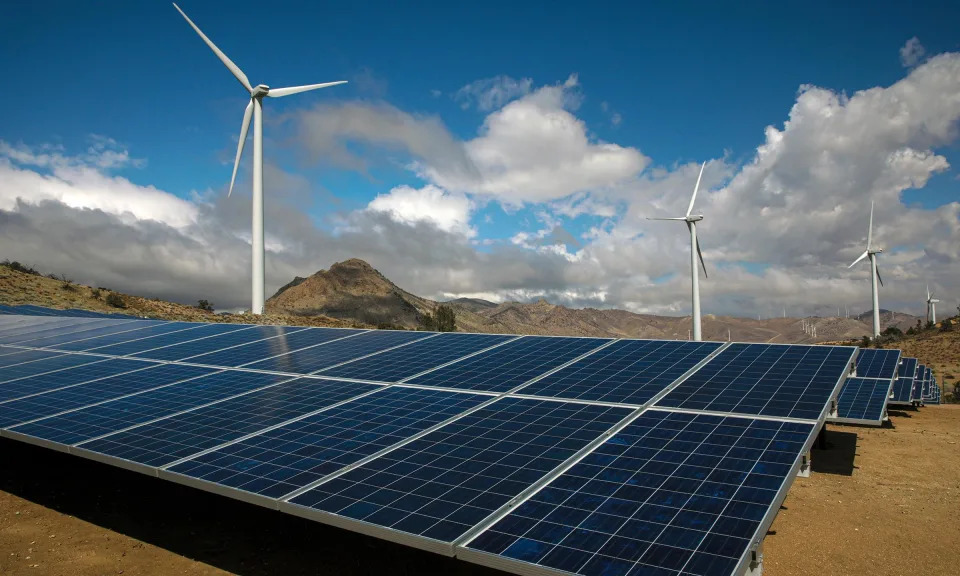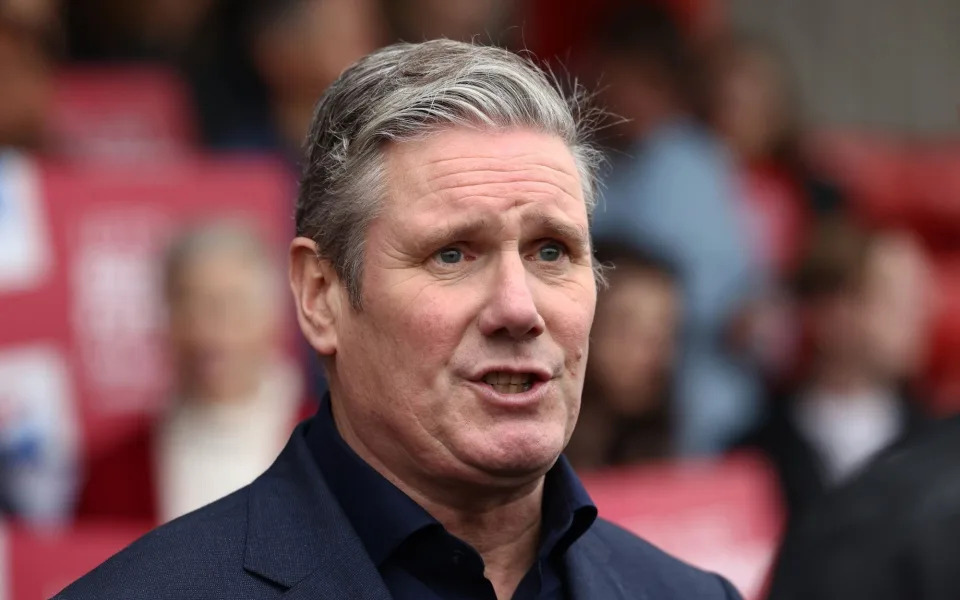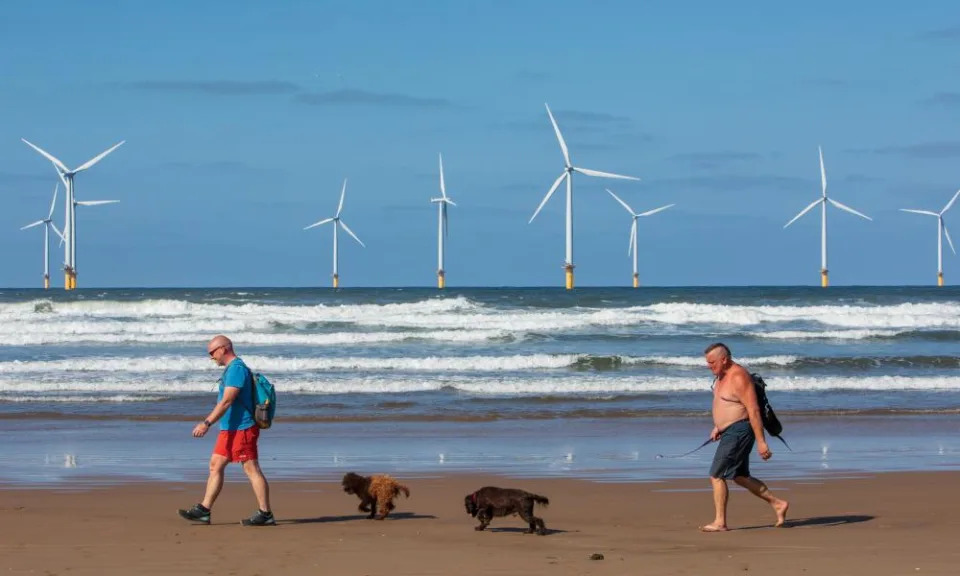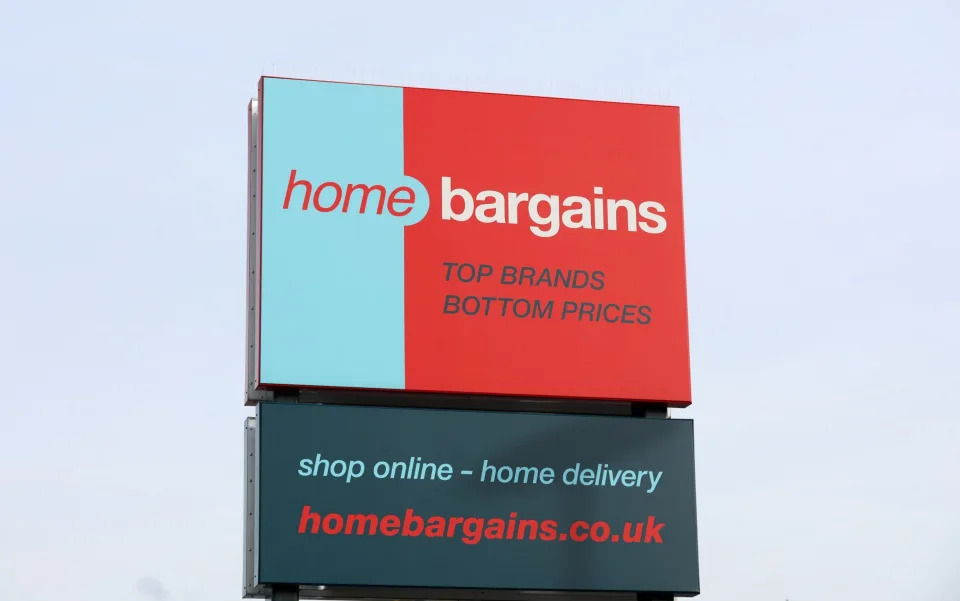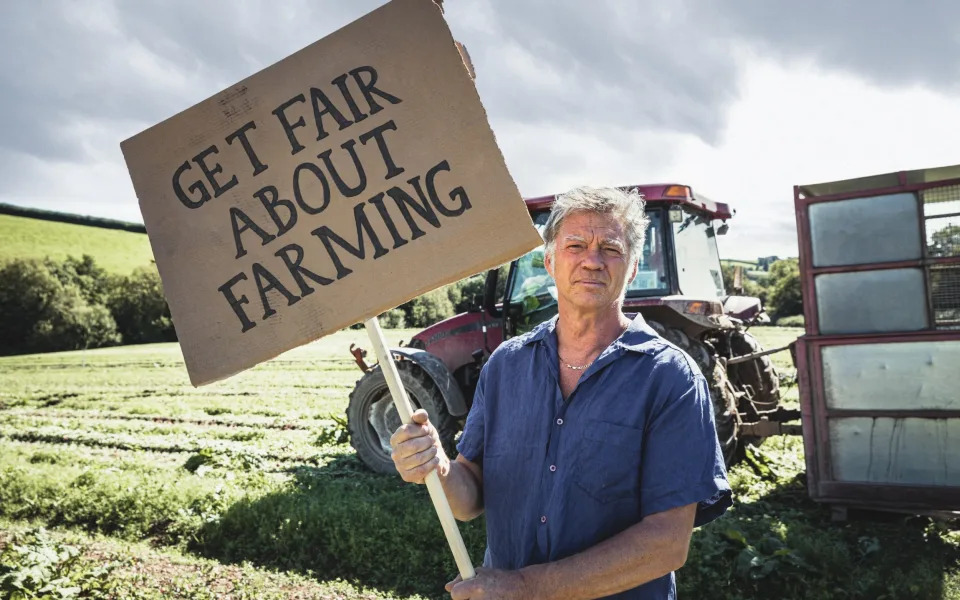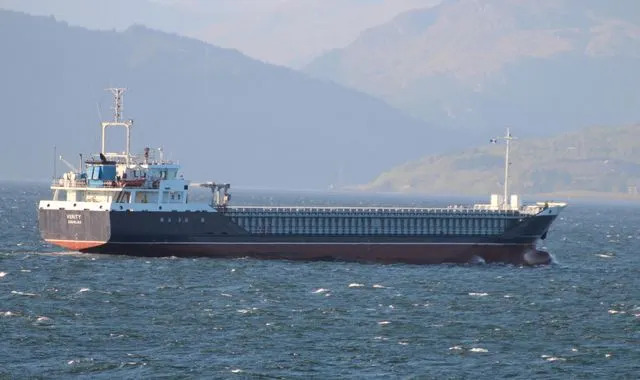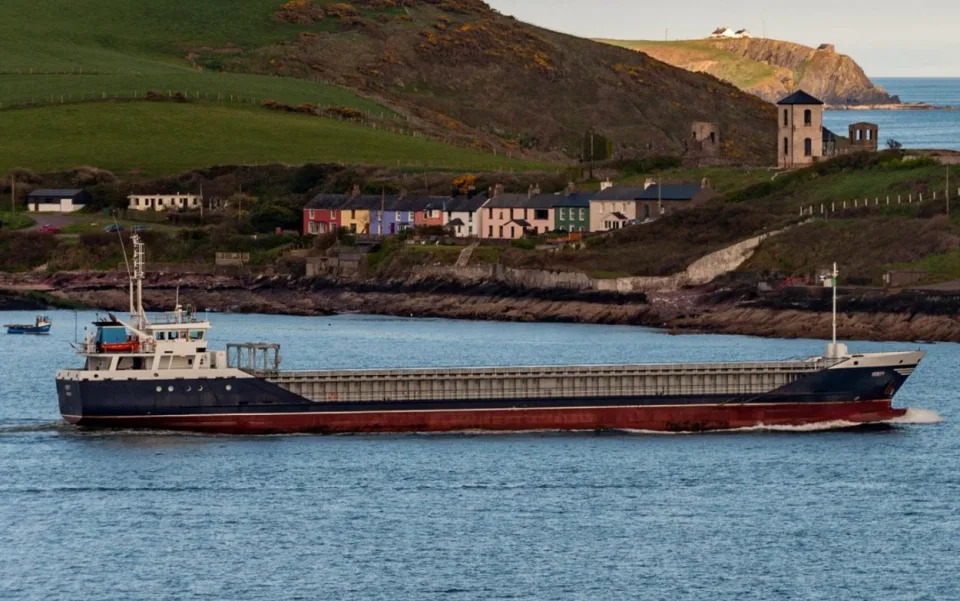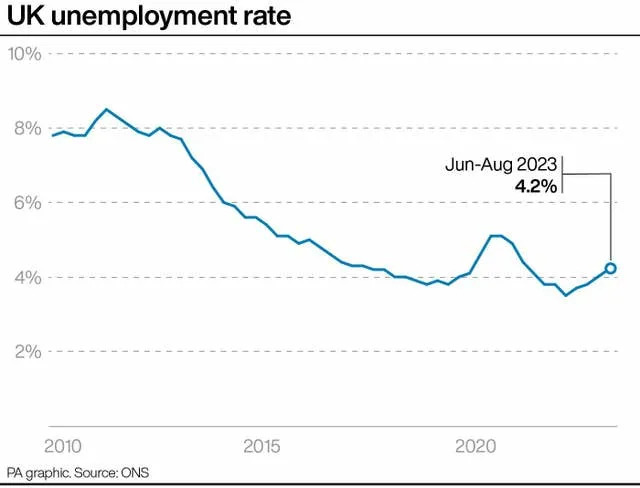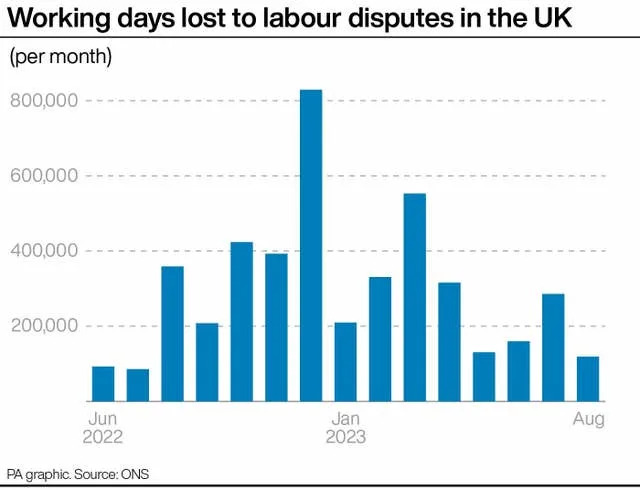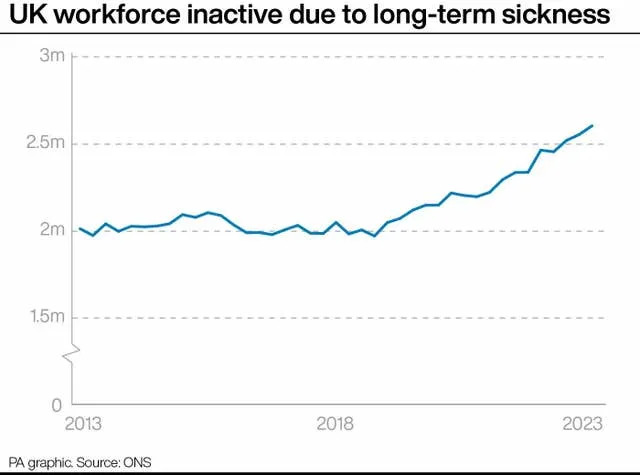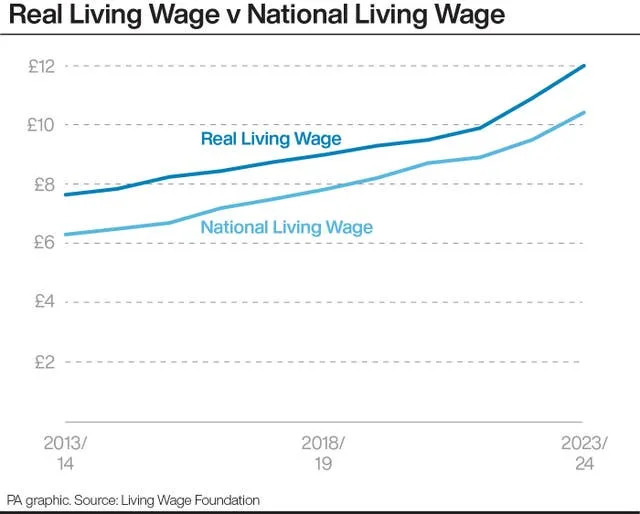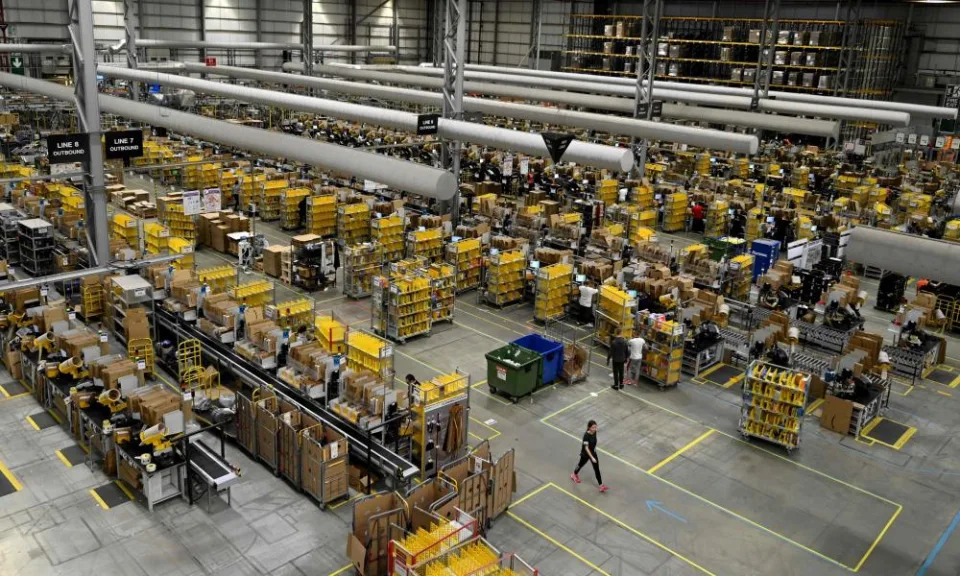UK
‘I can see no way forward for the Conservative party but a thumping loss and reset’
Candela Orobitg-Baena
TORY TELEGRAPH POLL
Tue, 24 October 2023
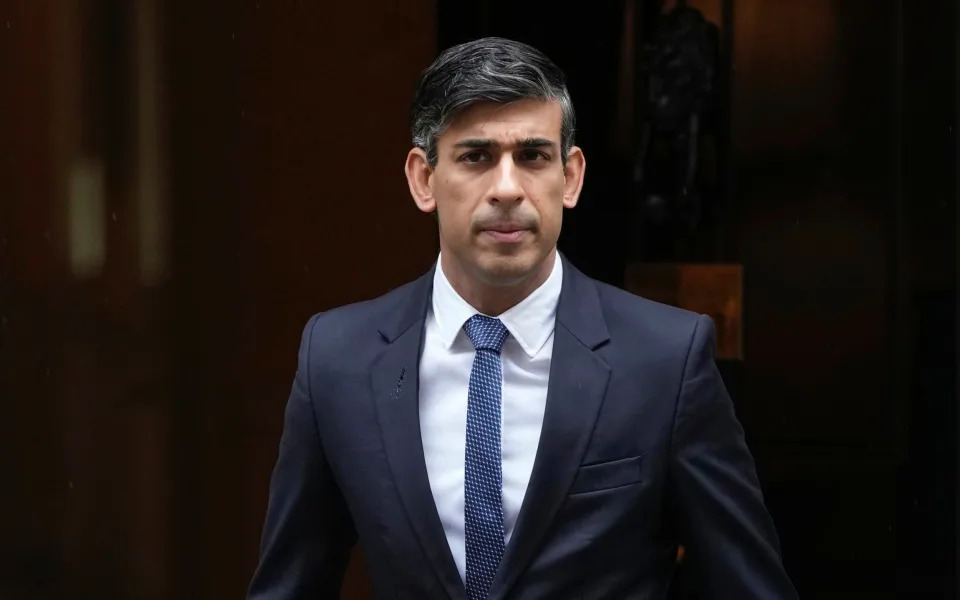
Some Telegraph readers are doubting Rishi Sunak's 'Prime Ministerial qualities' - Kin Cheung/AP
After two historic by-election losses for the Conservatives in Mid Bedfordshire and Tamworth, Prime Minister Rishi Sunak was warned his party is heading towards a 1997-style defeat.
A low turnout of previous Conservative voters may be to blame for Labour’s record-breaking victories; as well as growing support for the right-wing Reform party, which picked up a greater number of votes than the Labour majority in either constituency.
Following the news, Telegraph readers took to the comments section and sent in their reactions to Dominic Penna via the Telegraph’s Politics newsletter.
Read on for the best of the debate, and join the conversation in the comments section below.
‘If the Tories were a business, they would have gone bust by now’
Some Telegraph readers believe no hope is left for the Tories come the next General Election. Reader Richard Lindsay claims that the Conservative Party has “backed itself into a corner”.
“There is no room for tax cuts and, with one million open vacancies, tightening the points-based immigration system is fraught,” Mr Lindsay says.
He argues “slashing public services to pay for tax cuts might look appealing but generating the money needed to reduce tax meaningfully would mean essentially privatising huge chunks of the NHS, cutting education and gutting benefits, including pension. That’s no platform for winning a General Election next year.”
Therefore, he “can see no way forward for the party but a thumping loss and reset.”
Meanwhile, reader Stuart Priest claims that “if the Tories were a business, they would have gone bust by now,” as he argues how “they simply refuse to listen to their loyal customers and seem content with virtue signalling to people who will never buy from them.”
Further suggestions come from reader Alan Smith, who says “the first thing that Rishi Sunak needs to do is to shore up his own voters.”
He continues: “The Prime Minister has to take away the desire to vote Reform and trust that the soft centre vote returns once Labour’s policies become more exposed to analysis. There are many policies, such as VAT on private schools plus the threat of even higher taxes which should do that, though he must unleash some ‘attack dogs’ to frighten them!
“His personality is holding him back. He’s too keen to grovel in interviews and needs to be more robust in his responses. Say less but say it smarter and get those soundbites in. Remember ‘Labour’s not working’ and ‘Get Brexit done’? They actually work because people like simple messages.”
Telegraph reader James Fairrie presents “two simple steps that can get conservative voters back on side in this parliament.”
“First, deal with the illegal boat traffic and remove illegal migrants to Rwanda. Second, take a much-needed step back from the extremities of the net zero policies in a way that gains practical acceptability to the population.”
‘Sunak must move right and take the Cabinet with him’
Reader Jim Walton comments on the by-election results, arguing that the Tory defeat was “was more to do with the Right-wing voters not voting and protest-voting, rather than an outright switch to Labour”.
He says: “The Tories still have an opportunity to win back support. The Labour poll lead is ‘soft’ in the context of a General Election, and they don’t have the solutions to the country’s problems.
“Keir Starmer doesn’t have a direction of travel other than reaching Downing Street by attempting to agree with everyone with different messages on different days.”
David Apperley believes: “We need a proper Tory manifesto covering the areas that matter,” because “the Right will split without this, and Sunak must accept this and move accordingly.
“I would support a leadership challenge, but that will not happen, so Sunak must move right and take the Cabinet with him, and then we have a good chance.”

Some Telegraph readers are doubting Rishi Sunak's 'Prime Ministerial qualities' - Kin Cheung/AP
After two historic by-election losses for the Conservatives in Mid Bedfordshire and Tamworth, Prime Minister Rishi Sunak was warned his party is heading towards a 1997-style defeat.
A low turnout of previous Conservative voters may be to blame for Labour’s record-breaking victories; as well as growing support for the right-wing Reform party, which picked up a greater number of votes than the Labour majority in either constituency.
Following the news, Telegraph readers took to the comments section and sent in their reactions to Dominic Penna via the Telegraph’s Politics newsletter.
Read on for the best of the debate, and join the conversation in the comments section below.
‘If the Tories were a business, they would have gone bust by now’
Some Telegraph readers believe no hope is left for the Tories come the next General Election. Reader Richard Lindsay claims that the Conservative Party has “backed itself into a corner”.
“There is no room for tax cuts and, with one million open vacancies, tightening the points-based immigration system is fraught,” Mr Lindsay says.
He argues “slashing public services to pay for tax cuts might look appealing but generating the money needed to reduce tax meaningfully would mean essentially privatising huge chunks of the NHS, cutting education and gutting benefits, including pension. That’s no platform for winning a General Election next year.”
Therefore, he “can see no way forward for the party but a thumping loss and reset.”
Meanwhile, reader Stuart Priest claims that “if the Tories were a business, they would have gone bust by now,” as he argues how “they simply refuse to listen to their loyal customers and seem content with virtue signalling to people who will never buy from them.”
‘Mr Sunak will have to resign’
Others blame the Prime Minister for the Conservatives losing the faith of their voters. Reader Patricia Mattimore believes Mr Sunak is “is a nice moderate fellow” but suggests he is “weak and full of platitudes, which will certainly not win the 2024 election.”
She says: “Rather than be soundly beaten next year, Mr Sunak will have to resign. Why not take the bold step now and replace him with somebody who stands a good chance of reforming and clearing out a lot of ineffectual MPs who have been inherited from former prime ministers?
“There is a year to do this, but it must be done soon.”
Alan Bishop argues that if Mr Sunak “had Prime Ministerial qualities, he would have been able to make his own ‘good’ luck.”
He continues: “Despite a recent litany of poor political leaders over the past 40 years, Mr Sunak has plumbed to new depths. All his recent ‘presidential’ foreign visits will not make a jot of difference, other than adding to his CV for his return to a financial career.”
‘The rise of Reform is a serious threat to the Conservatives’
Other readers said that having lost all faith in the Conservatives they are now more inclined to support another party, namely Reform UK.
Richard Long shares: “There’s very little difference now between the Tories and Labour. Both are high taxation, high immigration parties. They were also both heavily supportive of the crippling and unnecessary lockdown policies.
“The only party that questioned the lockdowns and the only party with a net-zero immigration policy is Reform UK. They’ll definitely be getting my vote going forward. I’m through with this ‘pretend’ Conservative party, which is sad after being a lifelong supporter, but I cannot support this left wing shower.”
“There is a notable lack of enthusiasm among activists and many have dropped out. Conservative voters, too, have no enthusiasm for this government and its policies. There is not much time left.”
‘Two simple steps can get Conservative voters back’
However, there are some Telegraph readers who believe not all is lost for the Conservative Party – and still see them as contenders for the next General Election.
The Telegraph’s Political Correspondent Dominic Penna asked readers what Mr Sunak could do to “pull things back”, and many wrote in with their suggestions.
“Conservative voters are fed-up because of the shambles and self-serving drama of the Boris Johnson and Liz Truss era,” reader Tim Green says.
However, he argues “by contrast, Rishi Sunak is proving a fair-to-good PM with a clear and professional focus”
“Voters take time to forgive. If Mr Sunak hangs in for 12 more months, then the election could be close, as Tory supporters come back round.”
Mr Green suggests the Prime Minister needs to “focus again on illegal immigration; which is the Reform Party message,” as “Starmer is not Blair by any means because he has no clear moral purpose or vision and little charm.”
Others blame the Prime Minister for the Conservatives losing the faith of their voters. Reader Patricia Mattimore believes Mr Sunak is “is a nice moderate fellow” but suggests he is “weak and full of platitudes, which will certainly not win the 2024 election.”
She says: “Rather than be soundly beaten next year, Mr Sunak will have to resign. Why not take the bold step now and replace him with somebody who stands a good chance of reforming and clearing out a lot of ineffectual MPs who have been inherited from former prime ministers?
“There is a year to do this, but it must be done soon.”
Alan Bishop argues that if Mr Sunak “had Prime Ministerial qualities, he would have been able to make his own ‘good’ luck.”
He continues: “Despite a recent litany of poor political leaders over the past 40 years, Mr Sunak has plumbed to new depths. All his recent ‘presidential’ foreign visits will not make a jot of difference, other than adding to his CV for his return to a financial career.”
‘The rise of Reform is a serious threat to the Conservatives’
Other readers said that having lost all faith in the Conservatives they are now more inclined to support another party, namely Reform UK.
Richard Long shares: “There’s very little difference now between the Tories and Labour. Both are high taxation, high immigration parties. They were also both heavily supportive of the crippling and unnecessary lockdown policies.
“The only party that questioned the lockdowns and the only party with a net-zero immigration policy is Reform UK. They’ll definitely be getting my vote going forward. I’m through with this ‘pretend’ Conservative party, which is sad after being a lifelong supporter, but I cannot support this left wing shower.”
Reader Ken Worthy writes: “The rise of Reform is a serious threat to the Conservatives. Since the general move to the Left in British politics over recent years, a lot of Conservative members, including long-term Conservative activists like myself, have felt that the present government is nowhere near Conservatism and doesn’t represent them.
“There is a notable lack of enthusiasm among activists and many have dropped out. Conservative voters, too, have no enthusiasm for this government and its policies. There is not much time left.”
‘Two simple steps can get Conservative voters back’
However, there are some Telegraph readers who believe not all is lost for the Conservative Party – and still see them as contenders for the next General Election.
The Telegraph’s Political Correspondent Dominic Penna asked readers what Mr Sunak could do to “pull things back”, and many wrote in with their suggestions.
“Conservative voters are fed-up because of the shambles and self-serving drama of the Boris Johnson and Liz Truss era,” reader Tim Green says.
However, he argues “by contrast, Rishi Sunak is proving a fair-to-good PM with a clear and professional focus”
“Voters take time to forgive. If Mr Sunak hangs in for 12 more months, then the election could be close, as Tory supporters come back round.”
Mr Green suggests the Prime Minister needs to “focus again on illegal immigration; which is the Reform Party message,” as “Starmer is not Blair by any means because he has no clear moral purpose or vision and little charm.”
Further suggestions come from reader Alan Smith, who says “the first thing that Rishi Sunak needs to do is to shore up his own voters.”
He continues: “The Prime Minister has to take away the desire to vote Reform and trust that the soft centre vote returns once Labour’s policies become more exposed to analysis. There are many policies, such as VAT on private schools plus the threat of even higher taxes which should do that, though he must unleash some ‘attack dogs’ to frighten them!
“His personality is holding him back. He’s too keen to grovel in interviews and needs to be more robust in his responses. Say less but say it smarter and get those soundbites in. Remember ‘Labour’s not working’ and ‘Get Brexit done’? They actually work because people like simple messages.”
Telegraph reader James Fairrie presents “two simple steps that can get conservative voters back on side in this parliament.”
“First, deal with the illegal boat traffic and remove illegal migrants to Rwanda. Second, take a much-needed step back from the extremities of the net zero policies in a way that gains practical acceptability to the population.”
‘Sunak must move right and take the Cabinet with him’
Reader Jim Walton comments on the by-election results, arguing that the Tory defeat was “was more to do with the Right-wing voters not voting and protest-voting, rather than an outright switch to Labour”.
He says: “The Tories still have an opportunity to win back support. The Labour poll lead is ‘soft’ in the context of a General Election, and they don’t have the solutions to the country’s problems.
“Keir Starmer doesn’t have a direction of travel other than reaching Downing Street by attempting to agree with everyone with different messages on different days.”
David Apperley believes: “We need a proper Tory manifesto covering the areas that matter,” because “the Right will split without this, and Sunak must accept this and move accordingly.
“I would support a leadership challenge, but that will not happen, so Sunak must move right and take the Cabinet with him, and then we have a good chance.”
